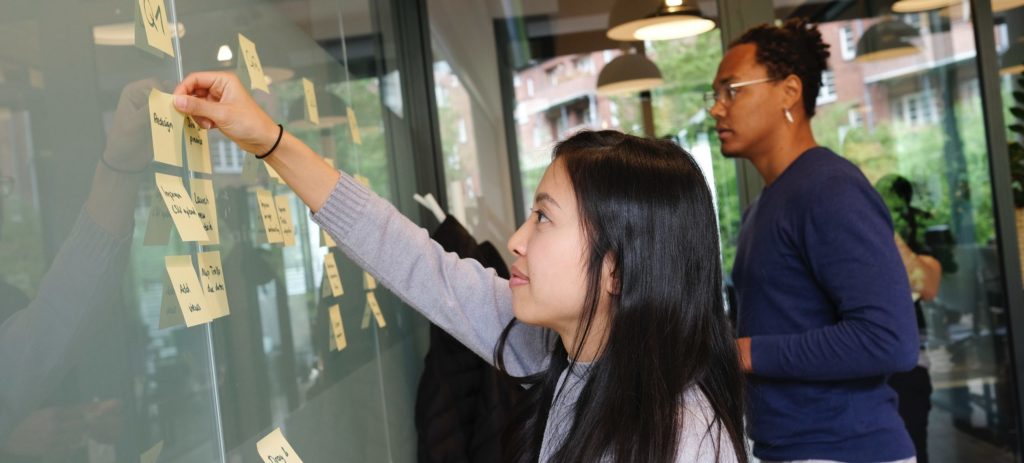

When students enter college, they often wonder if they belong or if they can be successful. Student experiences of campus and classroom environments shape how students face challenges and whether they seek support. This ultimately affects retention and academic achievement in college, especially for students from structurally disadvantaged or numerically underrepresented groups.
Universities participating in SEP sought to disrupt this dynamic by improving student experience and creating equitable learning environments. In their improvement efforts, participating universities were encouraged to build student leadership to improve student experience not only for but also with students. Students are the experts who know what is needed to improve their experiences on campuses. This kind of collaboration with students also augments their learning, respects their lived experience, and helps to them to become the leaders, thinkers and improvers our society needs.
Learn more about how to create opportunities for coproduction in your context with a free resource, Foundations for Authentic Coproduction from Shift—an SEP learning partner. It lays out five foundational steps for building meaningful collaboration between partners as they bring about a shared vision for improvement, including tips and tools for each foundation. You can see how these principles of coproducted played out in the SEP in this blog post co-authored by faculty and students from University of Colorado Denver and The University of New Mexico.
CONTRIBUTORS
Kimran Buckholz
Senior Lecturer, Department of Biology, University of New Mexico
Carolyn Hushman
Associate Professor of Educational Psychology, University of New Mexico
Avery Bachman-Rhodes
Student, Department of Biology, University of New Mexico
Lyndsey Engelmann
Student, Department of Biology, University of New Mexico
Raven Alcott
Student, Department of Earth & Planetary Science, University of New Mexico
Sushilla Knottenbelt
Senior Lecturer III, Department of Chemistry, University of New Mexico
Peer Learning Facilitators (PLFs) are undergraduate students who are invited to join instructional teams in courses where they have previously been successful. PLFs bring equity to large-enrolled courses by increasing access to the instructional team both during and outside class time, assisting instructors in using active learning pedagogies shown to positively impact success for diverse groups of students, and serving as a “near peer” mentors who normalize life and course challenges and increase help-seeking behaviors from students. All PLFs are enrolled in a credit-bearing course to learn effective teaching strategies. SEP principles are incorporated into this course, and PLFs are encouraged to develop opportunities to convey growth mindset messages and to support the belonging and self-efficacy in their interactions with students. Click the link below to download the syllabus for the PLF onboarding course.
During the 2020-21 academic year at UNM, 38 PLFs supported 43 courses, which enrolled 2700 students. Of the students who worked with a PLF, 89% say that support was crucial to their success. PLFs report the experience enhanced their communication skills and helped them see the student community more positively.
CONTRIBUTORS
Laurel Hartley
Associate Professor of Integrative Biology, University of Colorado Denver
Amanda Beyer-Purvis
Former Project Manager, Office of Inclusive Excellence in STEM, University of Colorado Denver
Zenetta Zepeda
Student, Department of Biology, University of Colorado Denver
Mike Swing
Student, Department of Biology, University of Colorado Denver
Alyssa Cruz
Student, Department of Biology, University of Colorado Denver
Sumin Kim
Student, Department of Biology, University of Colorado Denver
Piper Scherckenbach
Student, Department of Biology, University of Colorado Denver
Beck Harrott
Student, Department of Biology, University of Colorado Denver
Zahra Mubarak
Student, Department of Biology, University of Colorado Denver
At University of Colorado Denver, faculty leaders have been working to integrate student voice into the design of equitable supports and programs for students. CU Denver hires undergraduate Learning Assistants (LAs) to work with students in STEM classes. One of the goals of LAs is to “improve student learning and satisfaction in gatekeeper and gateway courses.” Over the Summer and Fall 2020 semesters, CU Denver hired five former LAs to create and pilot a student success initiative for the introductory biology course. Students were given agency and independence to work on projects they thought would be most beneficial in promoting student success. The students felt that creating a sense of community among incoming first-year students was the most crucial issue that could truly help students find support, persist, and succeed. They developed and monitored a student-centered, broad course shell for all intro biology students. The students acted as moderators, answered any questions and provided games, interactions and community nights that developed a sense of community for students who were not experiencing the traditional peer connections on campus.